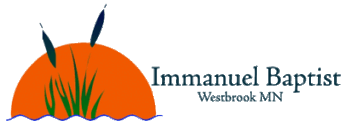2, 3 John—Truth, Love, and Character
6.28.23
I rejoiced greatly that I found of your children walking in truth, as we have received a commandment from the Father. (2 John 4)
Today we will be looking at the two smallest books in the NT, both written by John. We will give attention to each in turn.
The first of these, 2 John, continues the themes of 1 John: truth and love.
John uses an enigmatic greeting: writing to “the elect lady and her children.” Is this a specific woman, or is he referring to a church? This writer holds that John was writing to a specific unknown lady, whose children and sister he knew, and who hosted a church in her home. The injunction against allowing false teachers to come to the home (10) would be referring to letting them into the church, and housing them on their journeys.
A simple outline is that John commends the lady (1-4), he commands her (5, 6), and he cautions her (10-13).
Just as in 1 John, this 2nd epistle is concerned with protecting the biblical doctrine of the incarnation. He wrote to refute the error that denies that Jesus Christ had come in the flesh. In fact, the statement in verse 7 regarding the denial that “Jesus has come in the flesh” uses the present participle, and should be read, “Jesus is coming in the flesh.” This would seem to include the first coming of Christ as a babe in a manger [the Incarnation], His present continuance in His glorified body, as well as His future coming to earth to sit upon the throne of David.
The theme of 3 John is Christian character. We therefore ought to receive such, that we might be fellowhelpers to the truth. (3 John 8)
John wrote this little letter to Gaius, a member of one of the local churches in Asia Minor. There are three men named Gaius in the NT (Rom 16:13; Acts 19:29; Acts 20:4, 5). He may have been one of these men, though it was a common name.
This is John’s most personal letter. It is the shortest book in the Bible—about one line shorter than 2 John in the Greek text. It’s key words, truth and love, mirror the thrust of John’s other two epistles.
He mentions three men in this letter. A simple outline would be: the prosperity of Gaius (1-8), the pride of Diotrephes (9-11), and the praise of Demetrius (12). He is thankful for Gaius’ hospitality. He is alarmed at Diotrephes’ independence. He is grateful for Demetrius’ example.
While the name of Jesus is not mentioned directly, those who are traveling were serving in His name, the name above all names.
“Oh, let my love be such to Thee, that I may ever grateful be, to suffer stigma, brand or shame, and count it honor for Thy name.”
May you take time to read these brief books and allow the Holy Spirit to minister to your heart.
